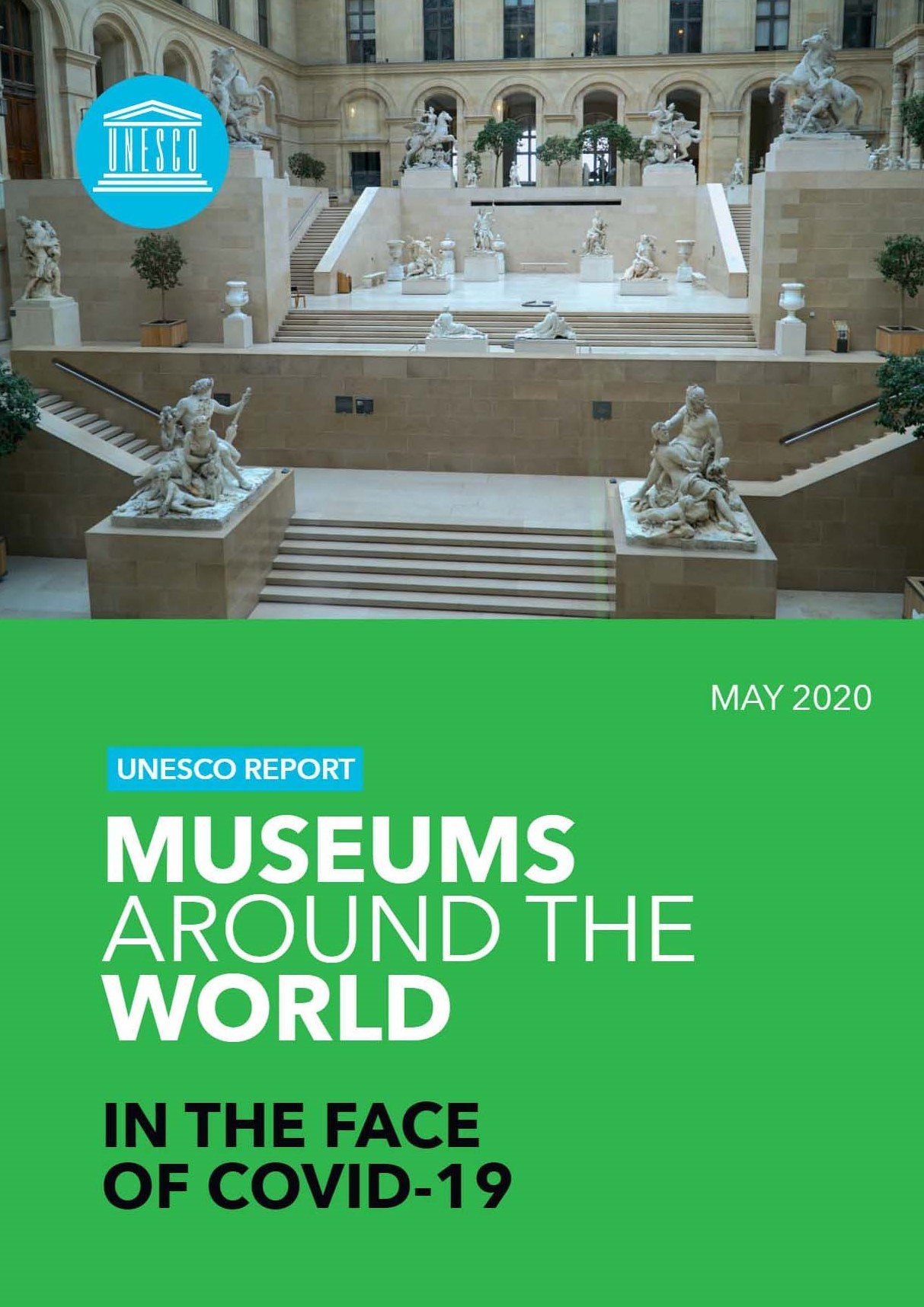UNESCO Report. Museums Around the World in the Face of COVID-19

In recent months, the COVID-19 crisis has profoundly affected societies around the world, plunging the global economy into a deep recession.
With the majority of cultural institutions forced to close their doors, the cultural sector has been one of the most affected. Tourism has largely ceased, impacting surrounding communities both socially and economically, and plunging artists and cu ltural professionals into a state of extreme economic and social fragility. Confined populations, unable to share and celebrate their heritage – notably their intangible cultural heritage - have suffered the loss of fundamental and structuring cultural elements of their daily social and individual lives.
Despite the challenges posed by this unprecedented crisis, many cultural institutions and professionals have continued to serve as a source of resilience and support to communities, devising new ways to provide access to culture and education in the context of containment measures. However, it should be noted that these innovations have not addressed the severe economic shortfalls experienced by cultural professionals. Moreover, almost half of the world's population currently has no access to the Internet, resulting in unequal access to cultural resources.
Museums have been particularly affected by the COVID-19 pandemic, with nearly 90% of them, or more than 85,000 institutions worldwide, having closed their doors during the crisis. The impact of these closures is not only economic, but also social. Museums play a vital role in our societies. They not only preserve our common heritage, but also provide spaces that promote education, inspiration and dialogue. Based on values of respect and cultural diversity, museums strengthen social cohesion, foster creativity and are conveyors of collective memory. Moreover, their role in the promotion of tourism is a key driver of sustainable economic development, both locally and nationally, which will be essential to overcoming the crisis in the coming months and years.
Faced with this situation, UNESCO launched a study to assess, on the basis of contributions from states and museum professionals, the impact of COVID-19 on museums and museum institutions. This initiative also seeks to understand how the sector has adapted to the constraints imposed by the pandemic and to explore ways of supporting affected institutions in the aftermath of the crisis. This report presents a first assessment of the impact of COVID-19 on the museum sector.
→ UNESCO Report. Museums Around the World in the Face of COVID-19